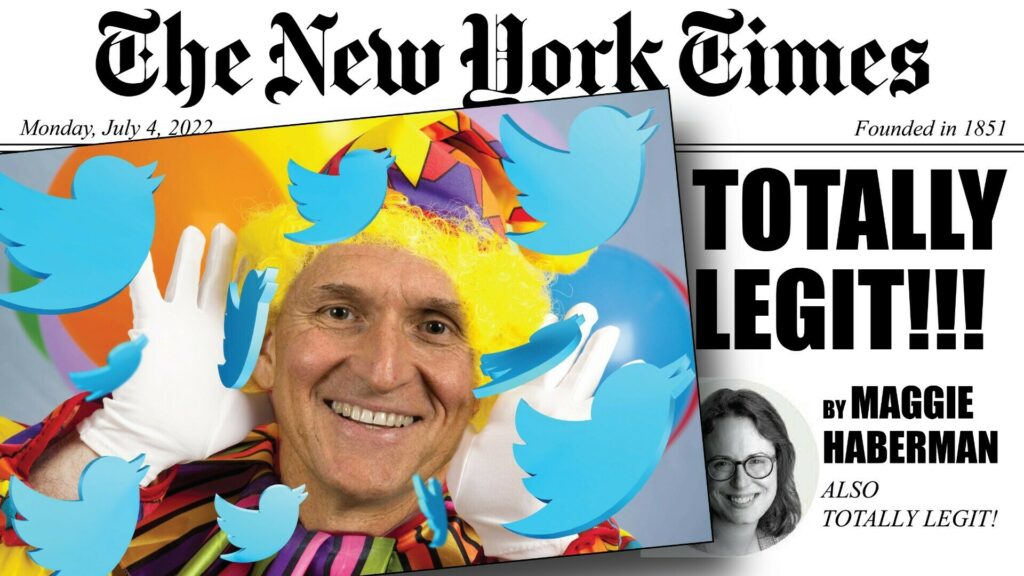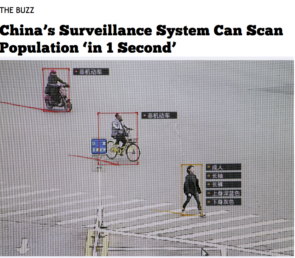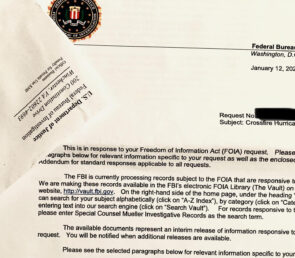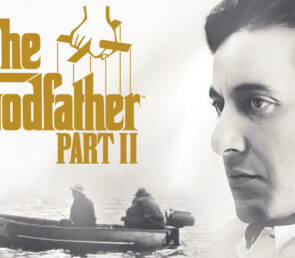
NYT’s Haberman ‘Duped’ by Gen. Flynn Parody Account
Date : July 5, 2022 By

After perusing the iMediaEthics’ database of media retractions and apologies, I performed a ‘URL hack’ by appending a “?s=” along with keywords to search the category. I found an iconic story that aptly fits my subject of study and the cause I am pursuing. My mission is to loosen the media grip on the public narrative by mitigating censorship through accountability and platform choice via hashed user signatures — an alphanumeric string generated by an algorithm from a user-entered passphrase. This most shockingly pertinent story was Sydney Smith’s overview of New York Times author Maggie Haberman et al.’s bizarre misidentification of a Twitter parody account belonging to former National Security Adviser and Three-Star General Michael Flynn.
Smith writes that not only did the prestigious writers Haberman et al. misidentify the clearly labeled parody account, but so did House Minority Leader Nancy Pelosi and Rep. Elijah Cummings. What’s more interesting is how fantastic these tweets were at the dawn of #RussiaGate and Flynn’s resignation announcement over conversations with Ambassador Sergey I. Kislyak. The parody account admitted full responsibility but lamented being scapegoated, alluding to co-conspirators while openly declaring to fall on the sword for the cause. The narrative is an obvious caricature and not an actual account of a general on trial for lying to the FBI. However, the parody tweets enabled Haberman et al. to concoct quite a tale that contradicts itself.
It is extraordinary that all three duped professionals — who each went through the rigorous process to confirm Twitter accounts of their own — missed the missing blue checkmark, “parody account” in the bio, and somehow believed the content was legitimate. Overlooking all that, we might generously say they fell victim to biased or reduced messaging processing as the pitfalls of a storied narrative to minimize peripheral facts.
Or maybe, we are witnessing the unfolding of a master-level fabricated story that includes Baldoni’s interplay of knowing the message, finding the right example, weaving a narrative, establishing passion, and supporting with well-sourced facts. Who doesn’t love a good conspiracy, especially when backed by juicy facts? Namely, Hillary Clinton’s former campaign press secretary and Evergreen Strategy Group co-founder Nick Merrill (2015) unwittingly revealed Haberman as their choice political operative within Wikileaks’ database of John Podesta emails. Merrill (2015), whose business name uses Clinton’s Secret Service codename Evergreen, declares, “[W]e can achieve our objective and do the most shaping by going to Maggie” (para. 10).
Was she just a remarkably incompetent journalist who can’t perform the basic functions of the job, or was it a very crafty messaging campaign by an established political operative that cleverly disguises the oversight as an accidental error?
While I’d love to use this as a straightforward example of why we need user signatures, Haberman et al. could have effortlessly prevented this “oversight” by reading the short bio or looking for a blue checkmark. But, instead of doing basic journalism, the story was out and grew wings miles past the span of those who the retraction could ever dream of reaching. The lesson is that, more probably, Haberman et al.’s reach grows wildly unchecked as a result of the distortion tactic expressed by Baldoni that “stories should only be more persuasive when facts are weak.” Accordingly, the story they were chasing was so weak that it was confused with parody.
Mission accomplished, or was it? These incredible media blunders have bred an unstoppable thirst of information consumers that act as viral relays for citizen journalists. Establishing user signatures would decentralize legacy media’s manipulative grip on the minds of the people by producing self-verifiable sources and allowing audiences to seamlessly transfer their identities to any platform of their choosing to escape censorship.

A Summa Cum Laude graduate (4.0 GPA) of Purdue Global University with a baccalaureate in the Science of Communications, my multidisciplinary experience ranges from journalism to marketing and web development. I presented my work on hashed usernames for privacy and transparency in aggregate data at a special session on data provenance at the NSA’s Symposium on the Science of Security.
https://buymeacoffee.com/crystalgonzalez
https://cash.app/$crystalgonzalez0




